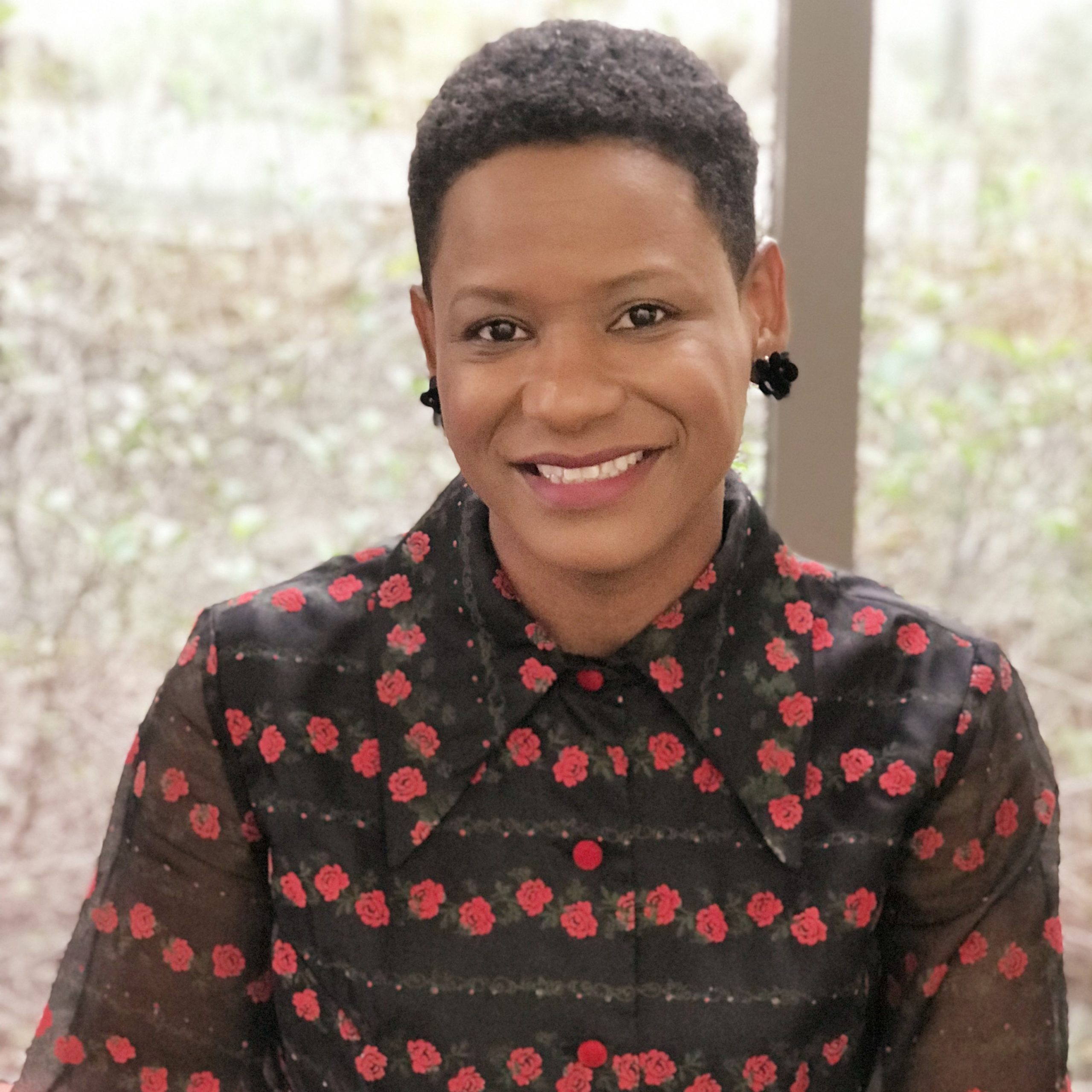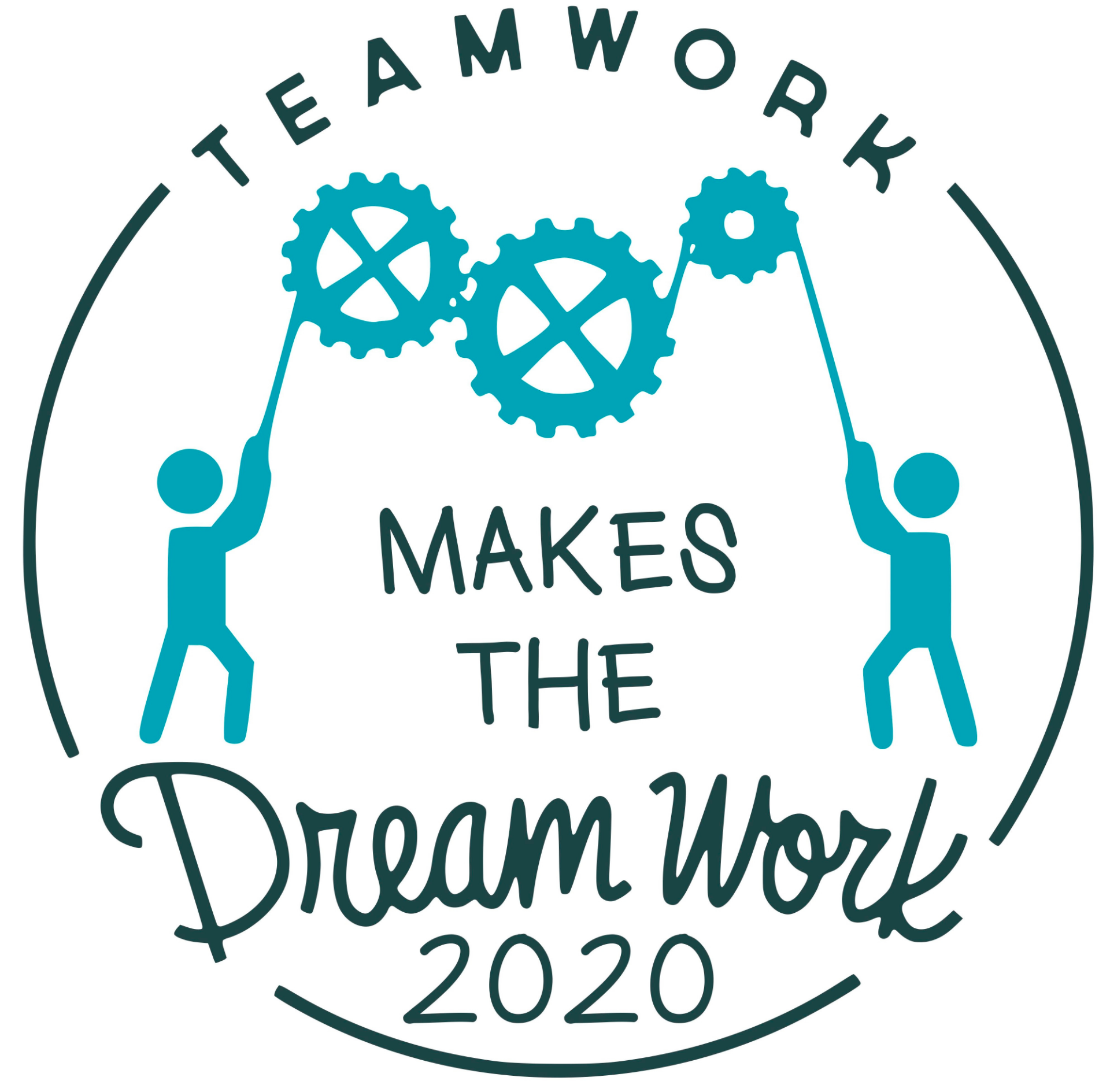
A Team Open to Change
Two Leaders – One Message


Shaneil “PJ” Yarbrough, AECA President Elect 2020
Teamwork Can Lead to a Radically Different World
Gregg Cooper, AECA President 2020
Now is the Time to Be an Agent of Change
Immediately after assuming his new role (January 2020), our President, Gregg Cooper, shared his vision for the year. His desire was to see Arkansas early childhood professionals working together in harmony for the well-being of young children and their families. The theme “Teamwork Makes the Dream Work” was decided upon. At that time, we had no idea the timeliness of this focus. However, we now find ourselves navigating through utter devastation – mourning the lives of Ahmaud Arbery, Breonna Taylor, George Floyd and so many more. We join the chorus of voices saying that #BlackLivesMatter and our hope is to recognize and affirm the significance of all individuals. As we strive to fulfill our mission of improving the quality of life for children, we know it will require teamwork.
These issues demand transformation and our organization will fight for equality and accountability. Though it seems impossible to solve the deep structural issues that caused this nationwide cry, we step forward with empathy giving a sustained effort to create change. As we learn to identify and address our personal biases, we can increase cultural competence. We will reject stereotypes, build meaningful relationships, and offer support to Black children and their families in the following ways:
- Become knowledgeable about the challenges that Blacks face
- Reflect on personal perceptions of Black children and their families
- Put negative assumptions based on race aside
- Make Black children and their families feel welcomed, not watched
- Provide genuine opportunities for Black children to achieve at high levels
While we realize this statement alone cannot fully encompass the heartbreaking status of our country, we believe to be silent is to be complicit. We will no longer pretend there is no problem. We cannot afford to turn our back on racism. We realize that all of us are affected; especially our children. In fact, we pledge to look to them [children] as our examples; mimicking their compassion for one another. Their innate ability to see past what makes them different and celebrate what they have in common is refreshing. AECA will seize every opportunity to intentionally and actively put our theme: “Teamwork Makes the Dream Work” into action. As a board, we will educate everyone about the reality of racism in our nation. We will work with other organizations to show that if we work as a team, then we can and will make a difference. We ask you to call out injustice when you see it. We ask you to make an intentional decision to be anti-racist. We call on you to be a part of our team.
Our aspiration is for Black children to inherit a radically different world from the one in which we are living.
As the president of AECA, I am honored to join with my colleague to share this message to members. AECA will maintain our collective commitment to all children. However, the time has come to have a laser focus on the disproportionate barriers and dangers for our families of color, especially black children and their families. AECA’s Board stands in solidarity against injustice, police violence, and systemic racism that plagues black communities across our nation.
I challenge us, as early educators, to be agents of change. In this time of dealing with both a global pandemic and painful social justice issues, it would be easy to lose hope. But as Martin Luther King Jr. reminded us, “Hate cannot drive out hate, only love can do that.”
Everyday we need to be examples of anti-racism. We must stand up to injustice and model the love and acceptance that we hold in our hearts for our students and families. Together we can create a culture where each person is heard, seen, and supported.
As a board, one of our tasks this year is to begin a strategic planning process. We will begin this summer looking at how we can advance as an association and better meet the needs of our members. We will explore new ways to improve the understanding of what racism is and how we can, as an organization, better understand our own biases. Understanding is the first step but then we must act. We must begin to dismantle any institutional bias we have within our organization. We will make that a top priority.
I challenge every member to do the same; take time to engage on a deeper level – to learn, reflect, understand, and then use this new information to take action. I believe, in doing so, that we will continue our work to stand up for children and families and unite together against anything that threatens to divide us.
We have added this new page to the AECA website to share our vision for the future and provide you with resources. We hope you find these resources helpful to you as a person and a professional. Please share related resources that you feel will be of benefit to others via communications@arkansasearlychildhood.org.
We hope that AECA can become a clearinghouse of information that helps us hone our skills in becoming anti-racists and early educators who play key roles in fostering the potential of all children.

Three Actions You Can Take Right Now
For Children
Embrace curiosity. Be careful not to ignore or discourage children’s questions about differences among people, even if the questions make you uncomfortable. Not being open to such questions sends the message that difference is negative.
For Yourself
Widen your circle of knowledge and influence to include people from different backgrounds and cultures. Challenge your understanding, views and beliefs through listening to the voices, work and experiences of people of color in their own words.
For Your Classroom
Select books that depict children of color as the main character. Great books can promote tolerance and diversity and teach readers about different cultures. All children need to see themselves and their peers in the stories shared and discussed at school. Not only their classroom peers but the ones in the future workplaces too. Many great examples are shared in the resources section below.
Resources
Parents and educators
June 1, 2020, Dr. Jane Elliott discusses her “Blue Eyes/Brown Eyes Exercise” and fighting racism with Jimmy Fallon
The Southern Poverty Law Center website offers a three-pronged strategy to battle racial and social injustice. One of those is Teaching Tolerance, a section dedicated to teaching young people from preschool on up. They have several resources helpful for parents and teachers. Beyond the Golden Rule, Parents Guide to Preventing and Responding to Prejudice is a downloadable booklet on talking to kids about tolerance from ages 2 through 17. The Kindness Poster attributed to Fred Rogers is a downloadable poster to be used in homes or classrooms. Their Self-Guided Learning provides a range of materials—articles, modules, self-assessments, publications and more—that allow educators to improve their practice at their own pace.
Talking to Children About Racial Bias from healthychildren.org is a resource for parents to understand how children learn racial bias and strategies and tips for addressing racism and discrimination. An article, The Impact of Racism on Child and Adolescent Health, in Pediatrics, the official journal of the American Academy of Pediatrics, provides a policy statement to an evidence-based document focused on the role of racism in child and adolescent development and health outcomes.
An article, The Impact of Racism on Child and Adolescent Health, in Pediatrics, the official journal of the American Academy of Pediatrics, provides a policy statement to an evidence-based document focused on the role of racism in child and adolescent development and health outcomes.
An anti-bias program puts diversity and equity goals at the center of all aspects of its organization and daily life. Systemic change requires leaders who take an intentional and strategic approach. The Anti-Bias Leaders in Early Childhood Education website provides frameworks and strategies for addressing the big picture of working with staff, families and the community to create and sustain anti-bias programs.
The National Association for the Education of Young Children has resources to help early childhood educators become skilled anti-bias teachers, with practical guides to help you confront and eliminate barriers of prejudice, misinformation, and bias.
Culturally Affirming SEL Resources to Guide Children to Disrupt Racism is a piece that guides educators to self-evaluate and explains how social-emotional practices can be (or fail to be) anti-racist.
Edutpopia has five strategies for elementary schools to help young children’s understanding of differences to teach social justice through a variety of resources.
Our friends at Arkansas Association for Infant Mental Health hosted the webinar ‘Let’s talk: Our role in supporting racial equity in early childhood’
The Yale Child Study Center released this research study brief – ‘Do Early Educators’ Implicit Biases Regarding Sex and Race Relate to Behavior Expectations and Recommendations of Preschool Expulsions and Suspensions?’
9 Anti-Racist Books to Enhance Your Teaching Practice
Guidelines for Achieving Bias Free Communication from ADL
Classroom Products
Available this July, Crayola Colors of the World is a set of 24 new specially formulated crayons “designed to mirror and represent over 40 global skin tones across the world.”
Resources to help facilitate conversations about race, including classroom appropriate lesson plans, guides on how to have tough conversations with peers and students, and more can be found at National Education Association – EdJustice. Readers will find timely coverage of social justice issues in education and ways they can advocate for our students, our schools, and our communities.
Reading List for Children and Youth Positively Depicting Characters of Color
Books with Characters of Color is a Top Picks list created by Common Sense Media to help families find books with diverse characters. It includes more than 80 books of all genres for early readers through teens in high school.
The Conscious Kid creates booklists and resources about racial bias and injustice.
The National Museum of African American History and Culture has ECE-specific resources on classroom activities and teacher learning.
Today’s Parent has a collection of 30 books that help get children thinking about racism and enable parents to begin those sometimes tough conversations.
Embrace Race has a wide selection of books that go beyond addressing issues of race and racism by also focusing on taking action. They highlight resistance, resilience and activism; and seek to empower youth to participate in the ongoing movement for racial justice.
PBS has created a list of 13 children’s books about race and diversity.
The Bookvine for Children has a section of multicultural books for infants, toddlers and preschoolers, as well as other categories.
The New York Times has assembled a great list of books and resources on how to talk to children about race and racism in an age-appropriate way. The list includes selections for infants and toddlers like Ezra Jack Keats’s books about Peter (“The Snowy Day,” “A Letter to Amy,” “Hi, Cat!,” “Whistle for Willie”). For preschoolers, the Times recommends “Saturday,” written and illustrated by Oge Mora, and “Hair Love,” by Matthew A. Cherry and illustrated by Vashti Harrison.
ZERO TO THREE also has a terrific list of books that feature a wide variety of characters and experiences, which they note “are a powerful way for all families to challenge stereotypes from the start.” They’ve also re-shared a resource with recommendations for talking about the complex issues of racism and equality in age-appropriate ways with children aged two to five years of age.
Researchers have identified an alarming lack of books about Black children in nature. Diversifying your bookshelf can help kids find themselves in literature—and the outdoors. Check out this list of The Best Books Featuring Black Children in the Outdoors provided here by Outside Online.
Indy’s Child has curated a list of 40 Books to Help You Talk to Your Kids About Racism, including 10 picture books for early readers.
That Sister website shares 37 Kids Books to Aid Talks on Race and Racism.
